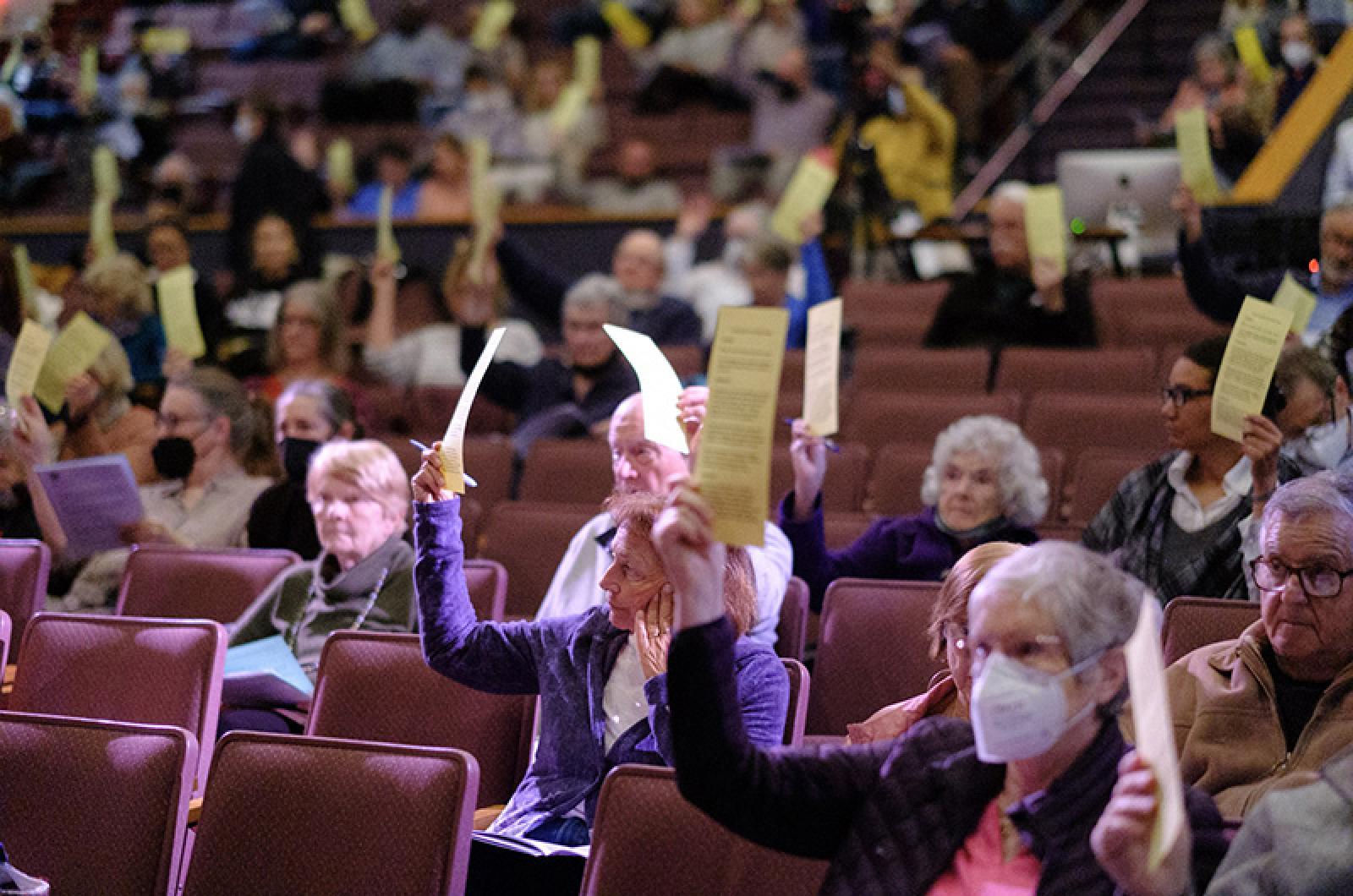Two Cape and Islands legislators filed a bill Tuesday that would require greater transparency and accountability for people who spend money in attempt to sway voter opinion at town meetings.
State Rep. Dylan Fernandes and Sen. Julian Cyr, who both represent the Vineyard, said they co-wrote the bill out of concern for an increasing use of “dark money” on the Cape and Nantucket.
The bill would close what the lawmakers called a loophole in the state’s campaign finance law. The state currently requires the disclosure of funds that people use to support or oppose ballot questions and sets spending caps for all state elections except town meetings.
The legislators propose that town meetings be written into the statute to ensure that any spending on ballot questions and articles is reported to the town in advance of the meeting.
This omission in the law has allowed several non-resident organizations to anonymously make financial contributions to various town meeting article pushes, particularly those related to housing and short-term rentals in Provincetown, Truro and Nantucket, said Mr. Cyr.
“We’re seeing this worrisome trend where off-Island and off-Cape interests are spending money to influence the voters at town meeting,” he said. “In Truro, in my hometown, a group called Take Back Truro has sent mail to voters, and there’s just no requirements for disclosure. This sort of political spending should follow all of the other good governance rules of the road that we have for other ballot initiatives and candidates.”
While the legislators said that they knew of no specific attempts to sway town meeting voters on the Vineyard, both worry Island towns are just as vulnerable to non-voter influence.
“This is a region where there’s just so much money,” said Mr. Fernandes. “And there’s so much money changing hands, especially from these really large rental platforms… so we just want to fill this gap that exists that allows dark money to flow at the local level.”
The bill is expected to be assigned to a legislative committee for further evaluation, a process that can take several months.







Comments
Comment policy »